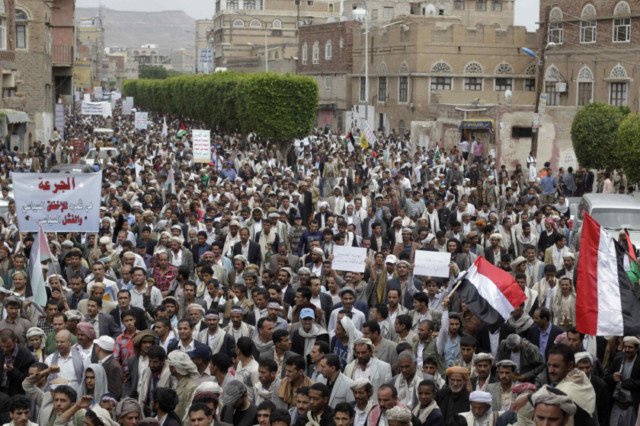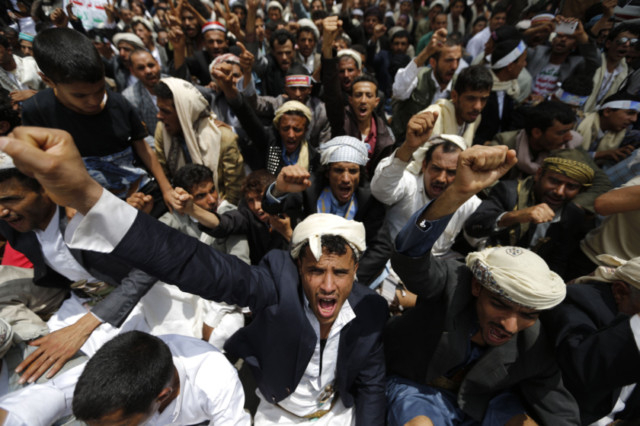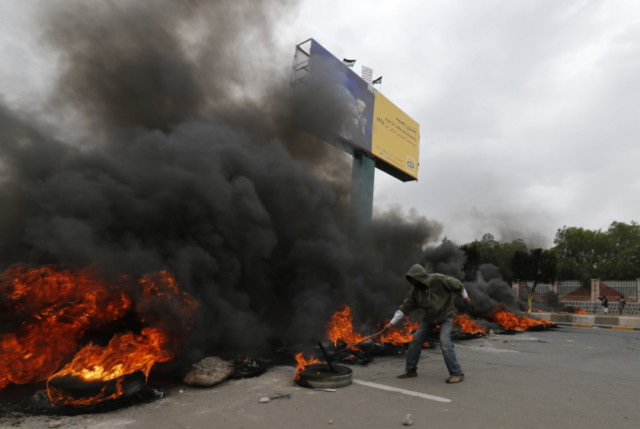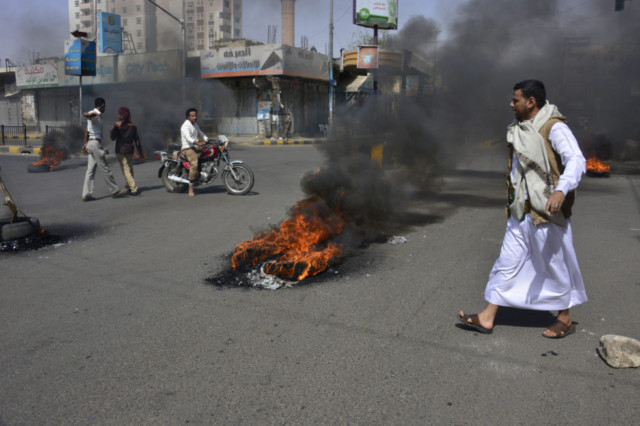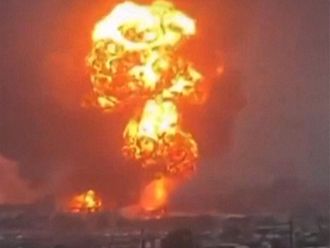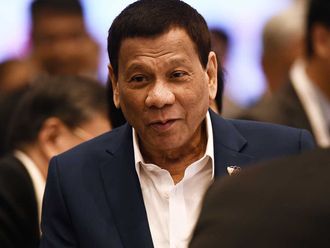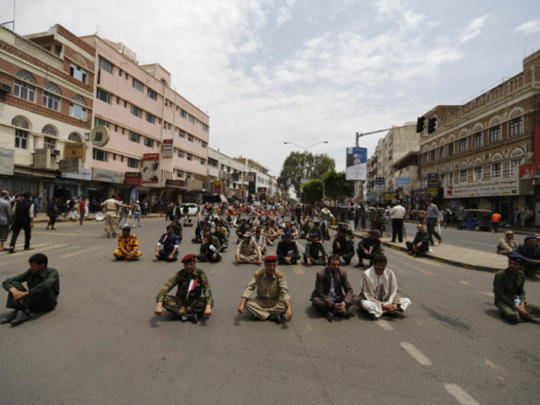
Sana’a: Thousands of people, mostly Al Houthis, demonstrated on the streets of the Yemeni capital and many other cities across the country on Monday to protest against the government’s latest decision to lift fuel subsidies.
The rallies were mainly staged in response to a call by the leader of the Al Houthi group, who urged Yemenis to organise big protests to show solidarity with the Palestinians in Gaza and to reject a hike in fuel prices.
The protesters chanted the rebels’ popular slogans, cursing the US and demanding the resignation of the government.
The protest was widely boycotted by some forces such as the supporters of former president Ali Abdullah Saleh, the Islah party and other forces that revolted against the former president in 2011. The ministry of interior deployed armed forces in the capital and helicopters were seen hovering over the protest.
Abdul Malek Al Houthi, the leader of the rebel group in northern Yemen, threatened on Sunday that his group would use “other options” which could include use of violence if the government did not rescind the fuel hike and resign.
Al Houthi said that the government works in harmony with “destructive foreign wishes and policies”.
The rebels control a large swath of land in the north following deadly conflicts with government forces and rival Islamist and tribal groups. They recently overran the province of Amran, 50km north of the capital, which is seen as the stronghold of their opponents, the Al Ahmar tribe.
Yemen president Abd Rabbo Mansour Hadi defended the decision on August 2 in a meeting with the cabinet, saying that lifting the subsidies was “a national necessity” to avoid an “ economic meltdown”.
On July 29, as people were celebrating Eid, the news of a new fuel hike spread quickly on social media and on the grapevine. Owners of oil stations told the queuing people that they received new instructions about new prices of fuel. A litre of gasoline was sold for 200 riyals rather than 125 riyals (Dh2.13), while diesel was sold at 195 riyals (Dh3.3),rather than 100 riyals.
Unlike the bloody protests of 2005, however, the latest decision sparked limited violent protests in the capital, where some people burnt tyres and blocked some streets. Government forces quickly dispersed the protests and arrested some of the protesters.
Observers in Yemen believe that the decision did not spark much violence as it was taken with the consent of powerful parties.
“People did not riot because they were tired of waiting outside oil stations for months [due to a fuel shortage]. They also realised that it would be hard to change the government’s mind,” Ali Al Faqih, the deputy editor of Al Masder daily told Gulf News.
This time, Yemenis turned to social media to vent their anger over fuel hikes. Some Facebook users mocked the government’s decision by posing with donkeys as alternative modes of transportation.
“Social media is an easy and cheap way of expressing opposition to the decision. The decision was also taken when they were on Eid vacation [when people leave the cities to return home].” Al Faqih said.
Meanwhile, the party of the former president Ali Abdullah Saleh has threatened to pull out of the unity government if the prime minister does not apologise for accusing the former president of coordinating with the Al Houthis to overthrow the government. Prime Minister Mohammad Salem Basindwa was quoted as saying on Sunday that he had picked up a conversation between the former president and the Al Houthis, allegedly inciting them to protest against the government.
“The General People’s Congress and its leader, Ali Abdullah Saleh, challenge Basindwa to broadcast the conversation through media.” the party said in a post on its official website.


